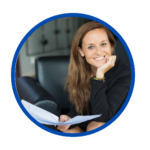Selling your own home can be quite an intimidating process, filled with costs, complicated steps, and paperwork.
Unless you’re an experienced real estate investor, a real estate broker, or an attorney, selling your home is not something you should do on your own.
In New York, real estate transactions can present many scenarios that will make the entire process long and difficult. Moreover, not knowing how to navigate through a real estate sale, you could incur additional fees and costs, minimizing your profit.
Having the guidance of a real estate attorney not only helps make the entire process seamless but knowing your real estate attorney has your best interests as their priority, will help you avoid the stress that many New Yorkers experience when selling a property.
5 Steps to Selling Your Home in New York
1. Finding a Buyer & Filling Out The Initial Paperwork
Assuming you’ve already read how to prepare your home for sale the first step to selling your home will be to list it for sale. Here you will decide on the price you want to sell if for, and work with your real estate broker to list the house for sale.
Potential buyers will now start to see your home online and if interested will come and view your home. Your real estate broker may also want to hold an open house to help find a potential buyer.
Once you have found a buyer who makes an acceptable offer, it’s time to fill out the real estate sale agreement and paperwork that will establish the rules and set the pace for the sale and the rest of the process.
Due to the loopholes often found in selling real estate in New York, we strongly advise that you do not sign or fill out any agreements or paperwork without showing your real estate attorney.
A real estate attorney will help to draw up all the needed paperwork, taking into account all needed legal aspects to ensure you and your property are protected throughout and also after the sale.
2. Home Inspection and Agreement Adjustments
Once the initial real estate agreement offer sheet has been signed the buyer will have a chance to conduct a thorough home inspection.
A licensed home inspector will inspect many aspects of your home to assure the buyer that there are no unknown or unforeseen defects or problems with the home.
If the inspection finds issues with your home that were not covered in the agreement, the buyer will have an opportunity to:
- Request that you fix the issues prior to proceeding
- Adjust the sale price taking into account the issues found
- Back out of the agreement completely, leaving you back at square zero.
- Use the inspection report for informational purposes and keep the agreement as-is
If the home inspection has found issues with your home that were not previously known, consult with your real estate attorney as to how to proceed.
As in our article, How to Prepare Your Home for Sale, we suggest conducting a home inspection prior to listing your home for sale so that you have a chance to fix any potential issues.
3. The Contract
Once the home inspection phase is complete, and you have settled how to proceed, it’s time to draw up and sign the sales contract.
The contract will cover all the specifics on the sale of your property, including the property’s value, its size, the final price, and any agreements that will take part as part of the real estate transaction.
Here your real estate attorney will work with the buyer’s attorney to review and negotiate various aspects of the sales contract so that both you and the buyer are satisfied and can proceed.
The buyer will then sign the contract and the contract is sent for finalization.
Once finalized, you as the seller will sign the contract and at that point, the sale will be considered executed and the transaction may proceed.
4. The Homestretch
Now that the contract has been signed, you will need to wait for:
- The buyer to apply for and receive a home loan, unless they are paying in cash.
- A complete title search to be done to ensure there are no issues with the home’s title.
- In the case of a home that is part of a community, such as a townhome, a condominium, or co-op, the buyer must apply for approval from the board. This generally takes 7-10 days and can sometimes require some additional fees.
- Any existing tenants to move out before the set closing date.
5. At Last, The Closing
The closing will be the final meeting where all the paperwork is signed, where the title and deed of the property is transferred to the new owner, and where you get paid for the sale of your home.
The closing will be a meeting that you will attend along with the buyer/s, all real estate attorneys involved, the title agency and all real estate agents involved.
The location, date, and time of the meeting will be scheduled ahead of time and is usually held in your attorney’s office, you being the seller.
After the closing is complete and all final paperwork is signed, the property will officially belong to the new owner and you will be paid for the sale of your property.

Annie Justice
Senior Editor
Piccinnini Law
(516) 500-2110

